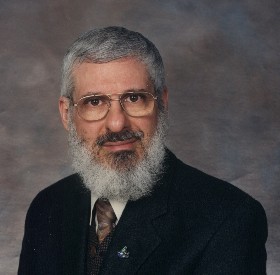
Day Job

|
Day Job |
| Old official corporate photo from 2000 |
The ARF Years
In 1974, I joined the staff of the Addiction Research Foundation (ARF)
in Toronto. They were looking for someone with skills in computing
and statistics, and I was looking for work that was geographically convenient
to the University of Toronto, where I was completing a PhD in experimental
psychology, specializing in psychoacoustics. At ARF, I did a mixture
of scientific and administrative computing work, eventually migrating
to the clinical area where I designed (in two senses) a number of trials
of acute drug effects: I did traditional statistical design (sample size,
counterbalancing of treatments, specification of analysis) and I developed
software for real-time collection of responses (questionnaires, performance,
pupil diameter, etc.). These trials were a mixture of grant-funded
basic research and commercially-sponsored tests of investigational drugs,
primarily in the area of psychopharmacology: drugs that affect the brain,
both affect (depression, anxiety, drug dependence) and behaviour (memory,
co-ordination, etc.).
The PDRU Years
In January of 1997, the research group that I was supporting moved from
ARF to Women's College Hospital (WCH), where we became the Psychopharmacology
and Dependence Research Unit (PDRU). ARF was interested in our work
but was divesting itself of many of the facilities we needed for that work,
particularly beds where research participants could remain under observation
overnight. I remained on the ARF staff, although seconded to the
PDRU as one of its contributions to the research effort. The
PDRU's mandate was to continue research in psychopharmacology, especially
differences between women's and men's response to treatment. Unfortunately,
the world at large did not yet pay sufficient attention to the importance
of such sex differences, and so such studies were only a small part of our
work. We were able, however, to do some interesting work concerning
nicotine. A web-friendly
summary of an article published in the summer of 2000 appears on the
web site of NIDA, the (U.S.) National Institute of Drug Abuse.
Later in 1997, a wave of government-mandated hospital mergers began, so the ARF is now part of the Centre for Addiction and Mental Health (CAMH). My formal connection with the PDRU ended in June, 2001, when I accepted an early retirement package from CAMH.
The Ventana Years
Government cutbacks in research support, at both the federal and provincial
levels, led to the semi-involuntary privatization of our research work. The
research group took on a second identity as Ventana Clinical Research Corporation,
which was organized to keep the research team together as the core of a larger
group providing clinical trial consulting and implementation to the pharmaceutical
industry. Beginning in July, 2001, I became a full-time employee
of Ventana, working in the areas of experimental design, statistical analysis,
pharmacokinetic computation, and software design (especially for the measurement
of pharmacologic effects), and my
title there was "Senior Scientist, Research Methodology". I occasionally
found it interesting to surprise my left-wing co-members of Karma Co-op by describing myself as
"a paid consultant to the pharmaceutical industry". In January 2002,
Ventana moved out of its Women's College Hospital site into its own
headquarters, and in December 2004 it moved to even larger headquarters. As
the company grew rapidly, I found myself increasingly unhappy with the way
my role fit into the larger picture, and I left my job in July 2005. Ventana
no longer exists under that name; it became Kendle Early Stage and then INC Research.
Retirement
I am now retired from the world of paying work, but
I have kept busy as a software developer and financial analyst for Karma Co-op and have been the Secretary of
1001 Friday Nights of Storytelling.
The Photo
The photograph at the top of this page was taken in the year 2000 for
use on the official Ventana web site, where it used to appear as a small,
monochrome image. Here, you get to see it in its full, glorious colour.
Return to Howard L. Kaplan's home page